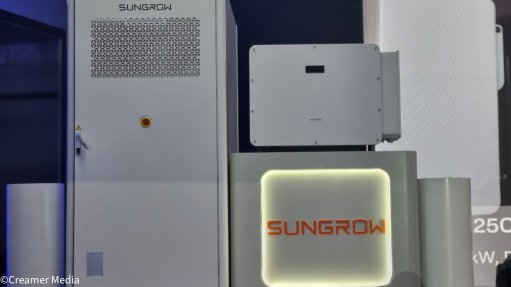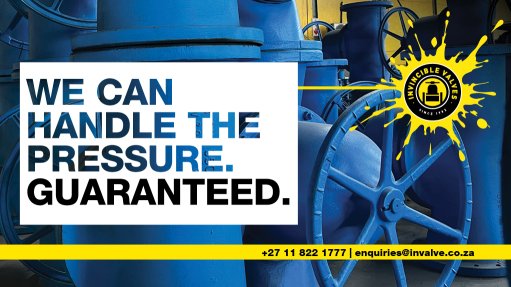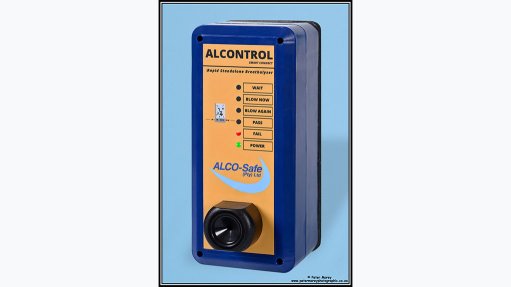Municipalities urged to take urgent action on pollution
The Department of Water and Sanitation (DWS) is urging municipalities to step up efforts to resolve pollution of South Africa’s rivers.
Municipalities that are discharging raw sewerage into water courses need to take decisive action and tackle their municipal wastewater infrastructure challenges to address the widespread challenge of pollution in rivers and streams, says Water and Sanitation Deputy Minister Sello Seitlholo.
“Municipalities are at the forefront of representing the interests of South Africans in their area of jurisdiction. Together, we need to change the mindset of normalising discharging raw sewage into our rivers and get back to basics [by] not allowing sewer to get into dams, river system or any water resource. That is the standard that all of us should strive towards,” he continues.
His comments followed warnings last month of the presence of cholera in the raw water in the Harts and Vaal rivers in the North West and the Northern Cape.
Following this, Seitlholo met with different stakeholders and the executive mayors of Dr Ruth Segomotsi Mompati, Francis Baard and Pixley ka Seme district municipalities, in the North West, whose wastewater systems discharge effluent into the rivers where the cholera bacteria was recently detected in raw water.
The DWS had undertaken a routine raw water sampling at five monitoring sites, namely Wentzel dam, Schweizer Reneke, Christiana, Barkley West caravan park and Douglas Weir in September.
The latest results of the follow-up sampling and tests, which were taken after the previous warning was issued, revealed that cholera bacteria (Vibrio Cholerae), albeit of a non-toxic strain, were still present in the raw water.
“There are two . . . strains of cholera: one that occurs in the environment (non-toxic) and the other, known as [the] enterotoxigenic strain, that produces a cholera toxin that can cause gastrointestinal illness. The strain detected is not responsible for causing gastrointestinal illness,” Seitlholo explains.
He further reveals that municipalities along the Lower Vaal catchment, in the North West and the Northern Cape, discharge raw sewage into the river, with Gauteng being the main culprit, responsible for the discharge of about 160-million litres daily into the water courses in the Middle Vaal catchment.
Seitlholo urges water users to continue to be cautious concerning raw water, and the affected municipalities to also continue taking extra care in the water treatment process, including disinfection and chlorination of the water in their water supply systems.
He reiterates the importance of ensuring that effluent that is discharged into rivers by municipalities and industries should meet the standard stipulated in the National Water Act.
Article Enquiry
Email Article
Save Article
Feedback
To advertise email advertising@creamermedia.co.za or click here
Comments
Press Office
Announcements
What's On
Subscribe to improve your user experience...
Option 1 (equivalent of R125 a month):
Receive a weekly copy of Creamer Media's Engineering News & Mining Weekly magazine
(print copy for those in South Africa and e-magazine for those outside of South Africa)
Receive daily email newsletters
Access to full search results
Access archive of magazine back copies
Access to Projects in Progress
Access to ONE Research Report of your choice in PDF format
Option 2 (equivalent of R375 a month):
All benefits from Option 1
PLUS
Access to Creamer Media's Research Channel Africa for ALL Research Reports, in PDF format, on various industrial and mining sectors
including Electricity; Water; Energy Transition; Hydrogen; Roads, Rail and Ports; Coal; Gold; Platinum; Battery Metals; etc.
Already a subscriber?
Forgotten your password?
Receive weekly copy of Creamer Media's Engineering News & Mining Weekly magazine (print copy for those in South Africa and e-magazine for those outside of South Africa)
➕
Recieve daily email newsletters
➕
Access to full search results
➕
Access archive of magazine back copies
➕
Access to Projects in Progress
➕
Access to ONE Research Report of your choice in PDF format
RESEARCH CHANNEL AFRICA
R4500 (equivalent of R375 a month)
SUBSCRIBEAll benefits from Option 1
➕
Access to Creamer Media's Research Channel Africa for ALL Research Reports on various industrial and mining sectors, in PDF format, including on:
Electricity
➕
Water
➕
Energy Transition
➕
Hydrogen
➕
Roads, Rail and Ports
➕
Coal
➕
Gold
➕
Platinum
➕
Battery Metals
➕
etc.
Receive all benefits from Option 1 or Option 2 delivered to numerous people at your company
➕
Multiple User names and Passwords for simultaneous log-ins
➕
Intranet integration access to all in your organisation


















